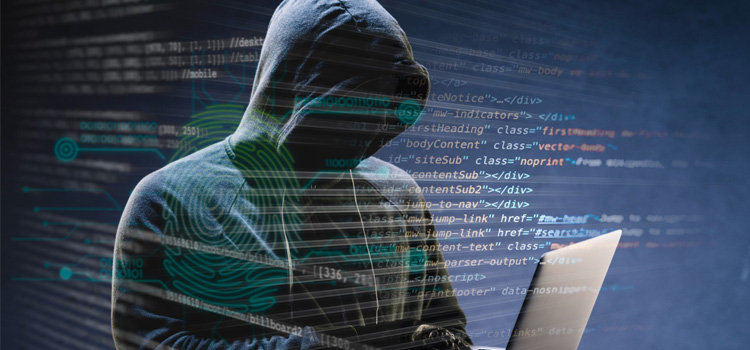Cyber, Internet, Information Technology Lawyers
Cyber Crimes Lawyer
India comes at the second highest place when it comes to smartphone users worldwide. This number showed a hike after the internet became common in India. Regardless of their literacy, people own the internet and because of the ease that artificial intelligence and modified technology allows, using the internet has become feasible for 2-3 year olds. And this has tremendously added to the rise of crime in the internet world. The crimes under the internet umbrella fall in the category of cyber crimes. The legal professional dealing with the matters in India is known as Cyber Crime Lawyer.
Common questions on ‘Cyber Laws’
- What is cyber law?
- What is cyber crime?
- What is cyber cell?
- What is the procedure to lodge a complaint under cyber law?
- What are various modes and manners of committing a cyber crime?
- What are various types of cyber crimes in India?
- What are laws concerning cyber crimes in India?
Cyber Laws aim at regulating the sphere of the Internet. The Internet has become a crucial and inevitable need of society in this technology dependent generation. There are people of every age group who can not spend a day without using the internet technology. Hence, policies regarding the monitoring and protection of cyber rights are the need of the hour which pave the way for the enactment of various cyber laws from time to time.
What are the types of laws in cyber security?
- National Cyber Security Policy 2013.
- Information Technology Act, 2000.
- The Indian Penal Code, 1860.
- NIST Cyber Security Framework.
Cyber Crimes Lawyers in India
India is one of the countries with the highest number of internet users. That is why the rate of cyber crimes is also high on graphs. Related matters are dealt with by cyber crimes lawyer in India. Given below is the cyber crime advocate list to be contacted as per the locality for court jurisdiction purposes.
Features of Cyber Laws in India
- Cyber-crime does not have a specific definition as per the Indian statutes. However, the meaning of crime has been discussed by Indian statutes and Courts, hence Cyber-crime is anything that has the elements of a crime with the involvement of a computer/cyber space.
- Courts & Judiciary have not yet given legal validity to emails
- As per Section 78 of the Information Technology Act, 2000 (hereinafter referred to as I.T. Act, 2000), only a police officer of the rank of Deputy Superintendent of Police and above can investigate any offence under the I.T. Act.
- Intermediaries are not liable for the third party information, data or communication hosted by them provided-
- Due diligence in the course of discharging their duties was observed
- Its role was restricted to the providing of access to a ‘communique system’
- Initiation of the transmission, or modification of the information of the transmission was not done by the intermediary
- Destruction, alteration, disruption, and so on a computer with the intention with the intention of destruction of data without the consent of the owner is a punishable offence for which a fine upto Rs. 1 Crore may be given as per Section 43 of the IT Act.
- Section 66A of the IT Act was held unconstitutional by the Supreme Court on 24th March 2015. Section 66A of the act dealt with punishment for sending offensive messages through communication service.
Being the cyber crime expert in India, the Cyber crimes lawyers have to keep themselves updated with the latest threats faced by internet users. This area has gained more focus in recent years with the usage of the internet increasing manifolds enhancing scope for cyber crimes lawyer. The freedom of expression through the internet exposes children to great risks and makes them prone to unfiltered media.
Cybercrimes lawyers in India are the right experts who can guide you properly on what actions to take in case of any cyber related issues happening knowingly or unknowingly. Taking immediate guidance will help to save yourself from many frauds.
Cyber Crimes Lawyer Questions
Q- What do cyber crime lawyers do?
A- Matters related to crimes on the internet technology are dealt with by cyber crime advocate in India. They bring their client’s side of facts before the court on legal pointers. A cyber law expert can also be contacted for consultation purposes.
Q- Who is the cyber lawyer in India?
A- The answer to the cyber crimes lawyer may vary as per the experienced clients. The cyber crime advocates are those who understand their client’s case and bring the out of it from a legal perspective.
Q- What is the name of law for dealing with cyber crime?
A- The Information Technology Act, 2000 is a major law governing cyber crimes in India.
Q- What does technology lawyer do?
A- A technology lawyer specializes in legal matters related to technology, including issues such as intellectual property, data privacy, cybersecurity, software licensing, and regulatory compliance in the rapidly evolving tech industry.
Q- What is the punishment for cyber crime?
A- The punishment for cyber crime depends on the kind of cyber crime. For example, punishment for sending offensive messages online (U/S 66A of IT Act, 2000) is imprisonment for a term which may extend to three years and with fine.
Search Result : Expert Cyber Lawyers in India
Consult Expert Cyber crimes Lawyers in India
Advocate Abhimanyu Shandilya
Advocate Anik
Bangalore
Advocate Anish Palkar
Mumbai suburban
Advocate Shrikrushna Tambde
Nagpur
Advocate Karunasish Chakraborty
Kolkata
Advocate Jaswant Singh Katariya
Gurgaon
Advocate Paresh M Modi
Ahmedabad




















